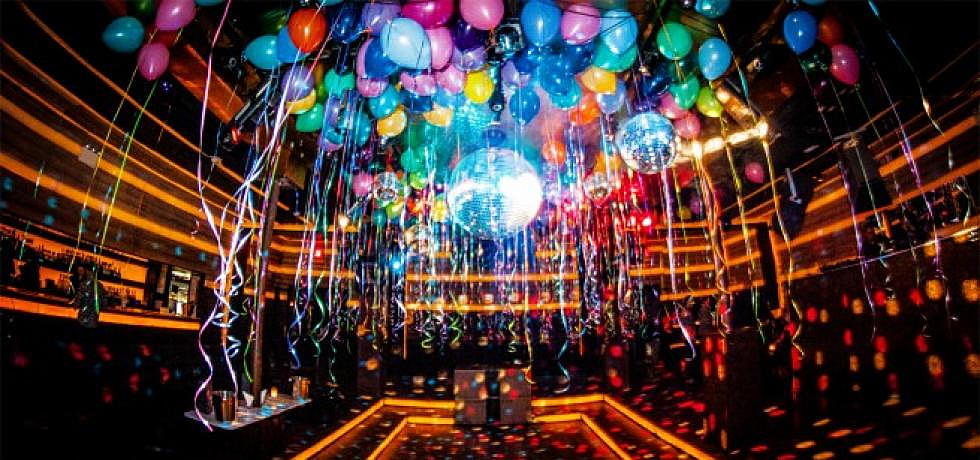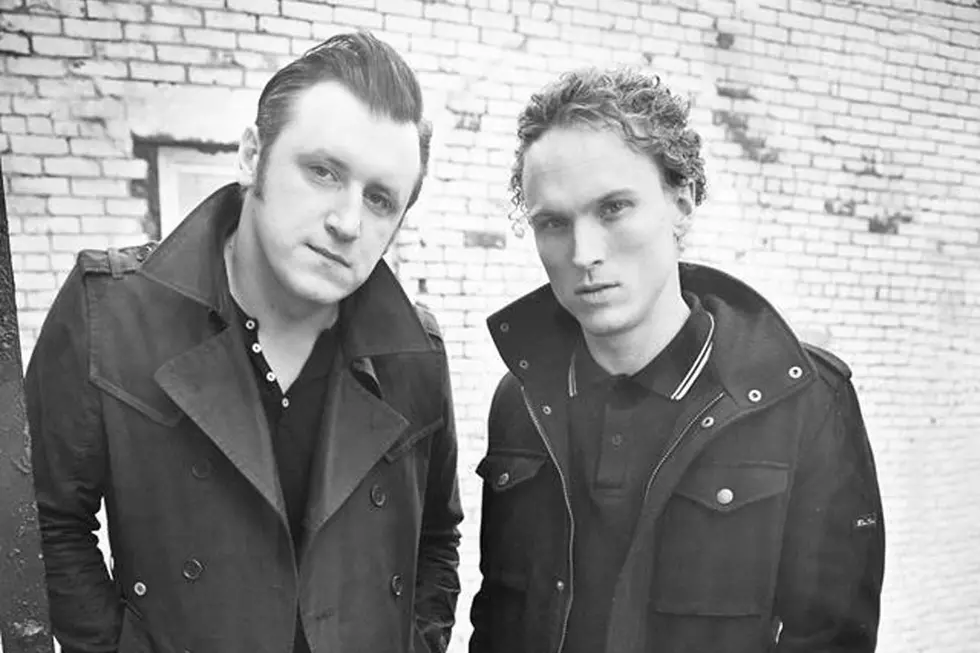
Interview with Cielo co-founder Nicolas Matar & resident DJ Francois K
New York City nightclub Cielo is celebrating its 10 year anniversary this month (started January 10th) with a series of 10 special events. Over the past decade, the club has been recognized as a pioneer in delivering an intimate music venue for both the crowd and DJ, intelligently combining elements of design and sound engineering from its sunken dancefloor to awarding winning sound system. We interviewed Cielo co-founder Nicolas Matar and long-time resident DJ Francois K to reflect on this milestone.
Nicolas Matar
What was the vision behind Cielo when initially starting off? How accurately has this vision been maintained (or evolved) over the past decade?
Cielo began with my experience as a resident DJ at Pacha in Ibiza, as the guiding nugget of inspiration. However, New York is not a Balearic seaside town by any means and Cielo has come into its own quite nicely given how much New York has changed over the last decade. The initial vision translated naturally into a boutique nightclub distinguished by an interior evocative of a timeless disco and what now houses the ‘Best Sound System” in the United States per Beatport. What has evolved in step with this vision is Cielo’s programming when it comes to the music.
During the planning phase, was the end goal always to create an intimate venue that allows an interaction between the DJ & crowd that isn’t possible at larger venues?
Absolutely. I think the beauty of Cielo is how it seamlessly integrates the DJ booth in the overall layout of the club. The intimacy created here dissolves the distant, rock star image of the DJ. At the same time, the sunken dance floor encourages clubbers to turn their backs on the booth and dance together. This sort of experience is increasingly difficult to find as electronic music and its artists grow in popularity.
How did the ultimate vision behind Cielo interplay with the sound and physical engineering of Cielo, which is renowned among peers?
It all comes down to making sure you don’t lose sight of the defining aesthetics and ethos while carefully overseeing the ever so important details of a nightclub and its day-to-day operations. I am grateful for the ongoing relationship I have with Funktion One. Our teams continue to work closely to ensure the best sound possible without overpowering the room.
Cielo has hosted residencies ranging from legends like Louie Vega and Francois K to hosting the likes of [David] Guetta, [Benny] Benassi, Carl Cox, Swedish House Mafia, Seth Troxler, and Loco Dice among others, at some point in their careers. How instrumental has Cielo been as a platform for developing new artists and DJs?
Residencies have always distinguished the most notable clubs in New York and around the world. They are essential to nurturing new artists and DJs so that the club, the residents, and new music can evolve naturally together. Cielo stands firmly within this tradition.
Following up on the above, relative to other newer venues, Cielo - widely known throughout the industry - has somehow managed to stay under the radar. Has this been essential towards its growth and success, to avoid the ‘catch-all’ crowds and attract fans of the music? To that end, how is the promotion behind such a small, intimate venue different?
Is Cielo under the radar? If you participate in global nightlife culture, you make a point to go to Cielo when you visit New York. That said, it has been a pleasure to work with Benny Soto and Rob Fernandez over the years while we grew core crowds for the residencies and introduced successful new parties such as DANCE.HERE.NOW. Cielo’s brand, intimate size, warm sound system, and music-oriented programming places it in a niche market where it stands alone and fills a void in a city once known for its small-scale discotheques.
Was it difficult to attract not only fans, but also artists, when launching in an area - the Meatpacking - that at the time (circa 2003), was not known for the club scene as it stands currently?
From the beginning Cielo developed like a family. Our core patrons are not ‘fans,’ but a tightly knit community of individuals dedicated to the music. This allows a great deal of freedom and innovation when it comes to bringing in new talent. And we’re lucky that most of the time...it works! The Meatpacking district has always had its niche in New York’s club culture. Some might have said,nightlife was clinically dead in New York in 2003, but at Cielo we strive to keep that beat alive.
With 10 years behind the club - what are you most proud of Cielo?
Not deviating from our original vision of creating a home for electronic music in NYC and never deviating from this in good times and in bad! Achieving this in a city like NYC with an average club life span of 1-2 years has not been an easy undertaking.
What are you looking forward to most in 2013?
To continue championing cutting edge electronic music in the greatest city in the world on the best sound system in the country!
Francois K
Having lived in NY for the better part of the past four decades, you have grown hand-in-hand with the club scene in NY and have perspective spanning a while back. What is it about the current state of the industry that is different and has you excited?
Forgive me for not really being concerned about what other people may be doing in town, as I feel that we already have our hands full dealing with the current state of what's going on for us, and of what we're always plotting when charting the course for Deep Space NYC, our weekly party at Cielo. While it is undeniable that other cities like Berlin may have temporarily taken the mantle when it comes to the number of clubs open and a permissive attitude to parties, I think that having the opportunity to play every Monday gives me an easy way to treat those who may be visiting to some of the rich musical heritage that is such a unique New York City thing, while also opening their ears to new sounds they may not know about. I do get the sense that many of those who visit us from overseas do appreciate this very much.
When looking specifically at Cielo, how does it differentiate itself from other venues that you have played at?
I don't look at Cielo as a dance club. To me most dance clubs are basically a large dance floor with a powerful sound system, some lights in a big black room and not necessarily much else; they seem to have been purpose-built for mostly dancing and not much else. Cielo is a warm, welcoming environment with truly great acoustics, a fabulous sound system, and very comfortable surroundings that helps those who come feel relaxed and at home no matter what they are after, and that includes plenty of plush seating as well as a futuristic vibe. People don't feel awkward just zoning out listening to some trippy music for a bit, whereas in a normal club it can get a bit strange if I was trying to do the same thing. So it's encouraging me to go beyond the usual with the music I can program, and this is one of the things that make Deep Space NYC so special. There is a synergy between the programming and the environment, which explains why this is our home rather than some other venue.
What have been some of the memorable moments during your residency at Cielo?
Deep Space has had over five hundred parties in the course of the close to ten years we have been there. It would truly be impossible to single out a few such moments as there has been so many absolutely mind-blowing parties that have taken place, with the endless list of stellar musical guests who have graced us, each with their unique talents. Rather than singling those out, perhaps what comes to mind is much more a rare accomplishment. The fact that we have been able to provide people with this consistent level of experience for almost ten years, staying true to the original vision of what Deep Space NYC was supposed to be about, and all the while evolving to champion some of the fresh new sounds (like Dubstep) that have flourished during that time, constantly evolving. I am quite sure that this is what might feel the most memorable in people's minds, rather than merely specific moments. Because so few events have really been able to stay on course and thrive for so long.
Cielo Official Website
Cielo Facebook
Cielo Twitter
More From Elektro Daily









